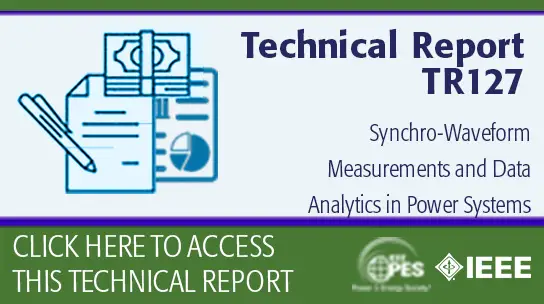Improving Resilience of Transmission and Distribution Grids: ISO-NE and ComEd Experience (Video)
Aleksi Paaso, Director of Distribution Planning, Smart Grid & Innovation, Commonwealth Edison (ComEd) Slava Maslennikov, Technical Manager, ISO New England
-
Members: FreePES
IEEE Members: $11.00
Non-members: $15.00Length: 02:00:10
Webinar
07 Dec 2020
This presentation describes experience of ISO New England (ISO-NE) and ComEd in improving resilience of transmission and distribution grids. ISO-NE will share its experience with improving resilience of transmission system and moving to operational resilience, and ComEd will share its experience with designing the distribution grid for increased resilience.
ISO New England will discuss its strategy and a practical way of shifting to a risk-based, resilient operation. Existing operational practices are largely based on N-1 security concept. Dramatic changes related to the increasing penetration of renewables, increasing range of variability and uncertainties and more frequent extreme weather events require significant changes in the process. Modern power systems require the transition from the reliability-based to resilience-based operation. The specific topics addressed in the presentation are:
• Online Cascading Analysis (OCA) as a basis for shifting towards risk-based dispatch.
Pilot implementation of the OCA includes steady-state and time-domain analysis.
• Tracking the weather related increase of probabilities of N-k outages and studying the corresponding system impact in OCA is a practical way for situational awareness beyond N-1.
Although storms, cyber-attacks, and public health crises like COVID-19 can impact the distribution gird, utilities like Commonwealth Edison (ComEd) are developing and demonstrating energy technologies specifically designed to mitigate grid disruptions and increase power system resilience. ComEd is utilizing resilience solutions ranging from microgrid technology to line sensors and predictive analytics, all enabled by an advanced communications network to help provide the resilience capabilities communities need to either prevent long-term outages or restore service quickly. ComEd conducted a holistic, data-driven analysis of its entire service territory to select the location that would most benefit from increased resilience and new energy technologies. This presentation will outline ComEd’s methodology for improving system resilience through these demonstrations, provide an overview of the resilience functions and capabilities of these technologies, and discuss metrics for measuring the resilience benefits.
ISO New England will discuss its strategy and a practical way of shifting to a risk-based, resilient operation. Existing operational practices are largely based on N-1 security concept. Dramatic changes related to the increasing penetration of renewables, increasing range of variability and uncertainties and more frequent extreme weather events require significant changes in the process. Modern power systems require the transition from the reliability-based to resilience-based operation. The specific topics addressed in the presentation are:
• Online Cascading Analysis (OCA) as a basis for shifting towards risk-based dispatch.
Pilot implementation of the OCA includes steady-state and time-domain analysis.
• Tracking the weather related increase of probabilities of N-k outages and studying the corresponding system impact in OCA is a practical way for situational awareness beyond N-1.
Although storms, cyber-attacks, and public health crises like COVID-19 can impact the distribution gird, utilities like Commonwealth Edison (ComEd) are developing and demonstrating energy technologies specifically designed to mitigate grid disruptions and increase power system resilience. ComEd is utilizing resilience solutions ranging from microgrid technology to line sensors and predictive analytics, all enabled by an advanced communications network to help provide the resilience capabilities communities need to either prevent long-term outages or restore service quickly. ComEd conducted a holistic, data-driven analysis of its entire service territory to select the location that would most benefit from increased resilience and new energy technologies. This presentation will outline ComEd’s methodology for improving system resilience through these demonstrations, provide an overview of the resilience functions and capabilities of these technologies, and discuss metrics for measuring the resilience benefits.
Chairs:
Marianna Vaiman & Sharma Kolluri, IEEE PES Corporate Engamgent Program (CEP) Chairs (2020)
Primary Committee:
Industry Technical Support Leadership Committee (ITSLC)
Sponsor Committees:
Industry Technical Support Leadership Committee (ITSLC)


